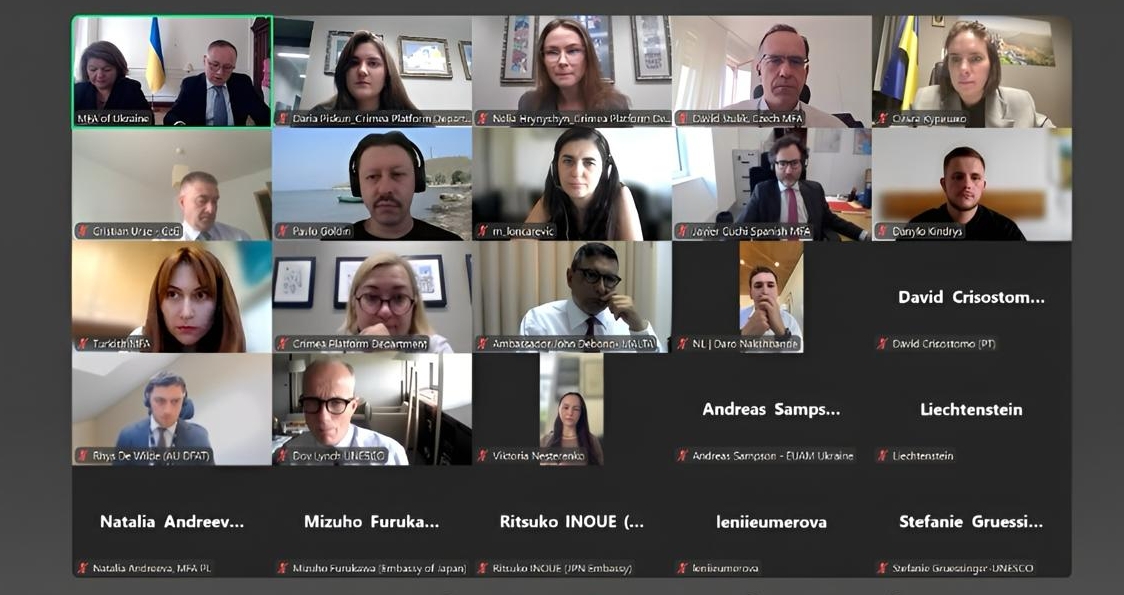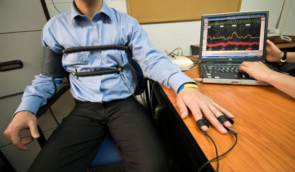Out of the over 220 political prisoners, 98 require medical assistance — Viktoriia Nesterenko spoke about the crimes of the Russian Federation at a briefing of the Crimean Platform Contact Network
On 26 August 2025, an online briefing was held for participants of the Crimean Platform Contact Network, organised by the Mission of the President of Ukraine in the Autonomous Republic of Crimea and the Ministry of Foreign Affairs of Ukraine. The event was attended by representatives of foreign ministries and embassies of more than 30 countries, EU delegations and international organisations, including GUAM, UNESCO and the Council of Europe, as well as representatives of Ukrainian civil society organisations.

During the meeting, participants were informed about preparations for the Fifth Summit of the International Crimean Platform and current programmes aimed at drawing attention to the situation on the occupied peninsula. Particular emphasis was placed on human rights violations and repressions committed by Russia.
The Permanent Representative of the President of Ukraine in the Autonomous Republic of Crimea, Olha Kuryshko, in her speech reminded international partners of the crimes committed by Russia on the occupied peninsula, in particular the militarisation of the Black Sea, the militarisation of children and youth, the nationalisation of property, violations of religious rights, pressure on indigenous peoples, repression against individuals who express pro-Ukrainian views, and the suppression of any form of peaceful resistance.
Speaking to the participants of the briefing, human rights defender and Project Manager of the Human Rights Centre ZMINA, Viktoriia Nesterenko, spoke about systematic persecution and the scale of repression on the occupied peninsula. She emphasised that the Russian authorities have been ignoring international law and human rights since the very beginning of the occupation. The human rights defender reported that there are currently more than 220 known political prisoners, and this number is constantly growing.
“Most of them have been illegally transferred to Russian prisons. Another 100 people are being held incommunicado. Among the political prisoners are 17 journalists imprisoned on trumped-up criminal charges of terrorism, high treason, extremism and other offences. The Russian authorities continue to persecute activists, journalists, human rights defenders and pro-Ukrainian residents of the peninsula, creating an atmosphere of fear and suppressing any resistance,” said Viktoriia Nesterenko.
She added that among those detained are at least 23 women, both from Crimea and the newly occupied territories: “Only 10 of them have already been sentenced, and we know where they are and what condition they are in. Among the known names are Iryna Danylovych, Halyna Dovhopola, Ania Yeltsova, Anna Sukhonosova, Oksana Senedzhuk, Iryna Horobtsova, Nina Tymoshenko, Yuliia Sokolova. The rest are in pre-trial detention centres in Crimea or the Russian Federation, and in some cases we have no information about them at all“.
According to Nesterenko, political prisoners are often held without proper medical assistance, and the Russian prison system does not provide even minimal medical services: “98 out of 220 people require medical assistance — these are people with disabilities, the elderly, those with chronic diseases, or those who fell ill during their imprisonment. Among them are five people with disabilities, such as Amet Suleimanov, who needs urgent heart surgery. We also see fatal cases: just this year, Rustem Virasti died, and in 2023, Dzhemil Hafarov and Kostiantyn Shyrinh“.
During the briefing, participants also heard presentations by experts from the Regional Centre for Human Rights, including Daryna Pidhorna and Kateryna Rashevska, as well as researcher Pavlo Holdin. They spoke about the illegal transfer of children, the destruction of cultural heritage and the environmental consequences of the occupation. Leniie Umerova, who had been released from Russian captivity in the autumn of 2024, addressed the Crimean Platform Contact Network with a keynote speech. She drew the attention of the participants of the briefing to the human rights situation in occupied Crimea, the pressure on the indigenous Crimean Tatar people, and the stories of other Crimean political prisoners held by Russia in places of detention.
If you have found a spelling error, please, notify us by selecting that text and pressing Ctrl+Enter.















